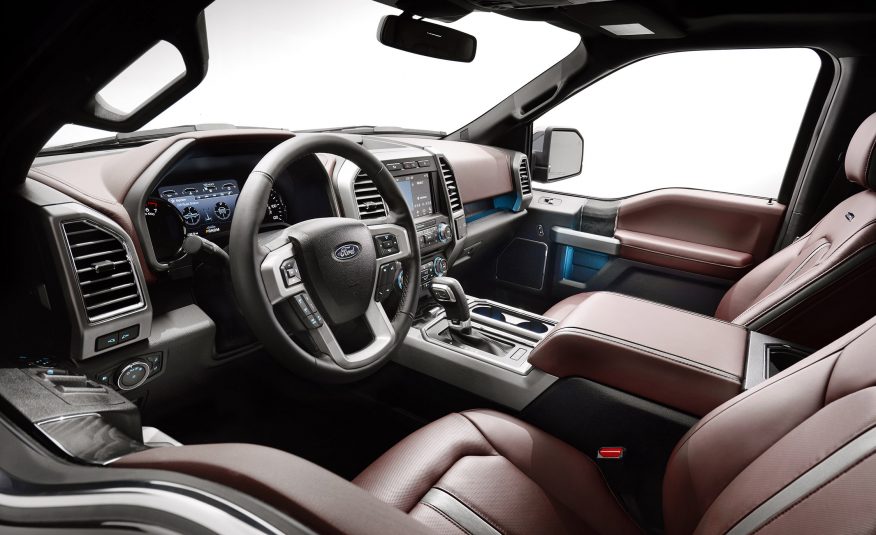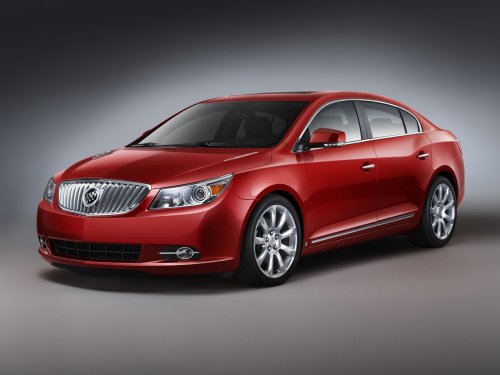-
2018 Buick Enclave “Avenir” will have ionic air purifier - April 12, 2017
-
Lease a Luxury Car for Less Than You Think - April 5, 2017
-
Shopping for a Car When Your Credit is Low - March 31, 2017
-
Aston Martin Closer to Unveiling Second-Generation Vantage - March 21, 2017
-
2017 Bentley Bentayga SUV: Offroad for $238,000 and Up - March 14, 2017
-
Pagani Huayra is Finally Here, Only $2.4M - March 9, 2017
-
Mercedes AMG E63 – For When Your Wagon Needs Drift - February 6, 2017
-
2018 Audi Q5 SUV: Enhanced Performance - January 30, 2017
-
2018 Toyota Camry Due in Late Summer - January 27, 2017
-
2018 Dodge Challenger SRT Demon Will Outstrip Hellcat - January 23, 2017
Negotiating With the Finance Manager at Car Dealerships
Once you have lined up some loan offers, it’s time to hit the dealerships to negotiate price.
This is a good time to check in with friends and family to see if anyone recommends a particular dealer. Reputable dealerships enjoy a lot of repeat business, so look for people who keep going back to the same dealer. This indicates the dealer is operating their business for the long haul. They work hard to put their customers in the right car at the right price with the right loan. Word of mouth recommendations are still one of the best ways to find such companies.
In your discussions with the dealership, which will likely start with a salesperson and end up in the finance manager’s office, it’s important to negotiate one thing at a time.
If you followed our earlier advice, you’ve already sold your existing car and don’t need to get bogged down in discussions about trade-in value. Remember, dealers are now making more money off used cars than new cars, in large part because they purchase them for such a low price through trade-ins.
Steer the conversation away from monthly payments and financing and get them to focus on price, including any desired options.
Throughout the process, it’s important to remember that you’re in charge. You must be prepared to leave if you feel they are withholding information or trying to coerce you into paying for options or dealer add-ons you don’t need or want.
Once you reach agreement on price, your next stop will be the finance manager’s office. You have finally arrived at the “back end” of the auto selling process that we described in our introduction.
From this point forward, it’s important to be aware that the finance manager is given an incentive to jack up the price you pay for the car and the loan. That is to say, they make more money for themselves and the dealership by getting you to pay a higher price and interest rate. They do this primarily by trying to sell you a host of dealer add-ons, many of which are not needed or can be installed by you for much less money. This results in what dealers sometimes call “packed payments.” They include rustproofing/undercoating, sound insulation, Scotch guarding upholstery, tinted windows and etching the VIN number on the windshield. Auto manufacturers now install rust proofing on virtually all their cars at the factory, so there is little need to pay for additional protection.
Other products dealers sell to push up their profits include:
– Extended warranties: Many vehicles now come with limited, 5-year, 100,000-mile manufacturer’s warranties. Make sure you understand what the extended warranty covers that the manufacturer’s warranty does not. Then ask yourself how likely that is to break and how much it will cost to fix.
– Gap insurance: Dealers are notorious for gouging their customers with high gap insurance premiums.
– Credit insurance: If your credit record is spotty, your lender may require you to buy credit insurance. This protects them in case you default on the loan. Make sure you get other lenders to break out the cost of credit insurance before you go to the dealership so you have a basis for comparison.
Conflict of interest
Remember that finance managers have a real conflict of interest. On the one hand, they will be rewarded with your loyalty if they negotiate you a good rate on a loan. On the other hand, they make more money by selling you the most expensive loan possible.
The good news is that if you’ve followed our advice, you now know exactly how much you want to pay per month, you know your credit score and you have three loan offers lined up. That puts the pressure on them to beat your offer. If the dealer comes back with an interest rate that is higher than what you’ve already negotiated with other lenders, be suspicious. Some lenders pay dealers a bonus if they can originate a loan at a higher than necessary interest rate. Under this scenario, a finance manager may discover you are entitled to a 12 percent loan, but offer you a 18 percent loan and pocket a larger commission on the front end. For this reason, it’s important to ask the finance manager what FICO score his rate is based on. Ask him if he can do better. If the finance manager refuses to disclose the information, get up and walk out of his office.
Bankruptcy, repos trump FICO score
Conversely, other criteria may trump a good credit score. For example, some people who have gone through bankruptcy can rebuild their credit score to the 700 level or higher, but still not qualify for the best interest rates. They remain part of the so-called “second chance” market, which includes people who have had a car repossessed or are chronically late in paying their auto loans. Understandably, lenders are not going to offer these borrowers the same interest rate as someone who has never filed bankruptcy nor had their car repossessed.
Second chance borrowers can ask the following questions to make sure they are getting the best rate:
– What percentage of your business is with second-chance borrowers? This will give you an idea of how expert he or she is at finding loans for people with spotty credit histories.
– How many of your lenders make “second chance loans?” Again, this tells you whether they are equipped to find you the best deal.
– How many of your lenders bid on my loan? The more lenders bidding for your business, the lower the interest rate you will get. A good finance manager will shop your loan around to at least three or four lenders to try to get the best deal.
If it is better, make the deal. Just be careful to read all the fine print in the contract. Tell them you need at least half an hour to review the contracts and would prefer to have privacy while doing so. Make sure they have written in the correct APR and terms and mark any areas you don’t understand or object to. Ask them about these sections and if they don’t resolve your objections, mark through them on the contract and tell them you can’t agree to those provisions.
Congratulations! You just bought a new car and you got the best financing deal possible. Now you can really go out and brag to your friends and family about what a great deal you got on that new car.















